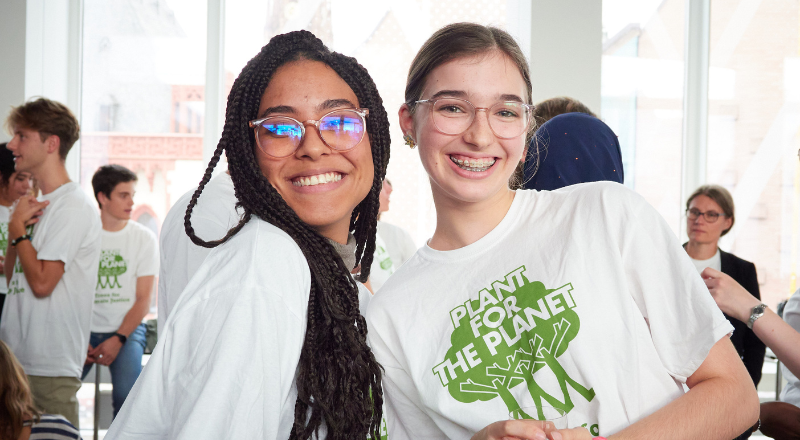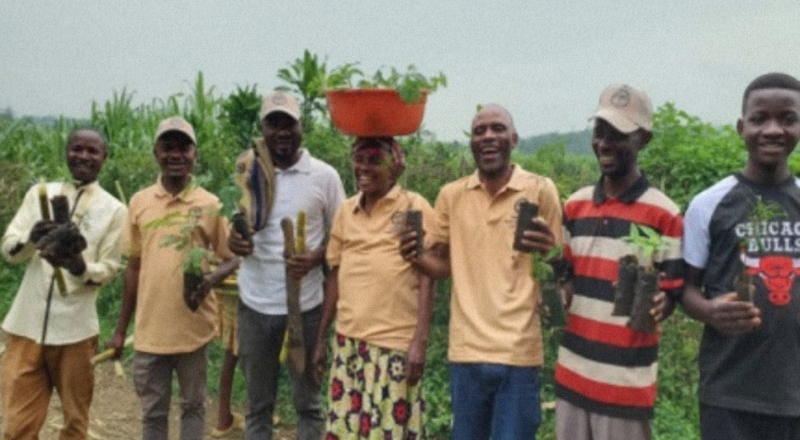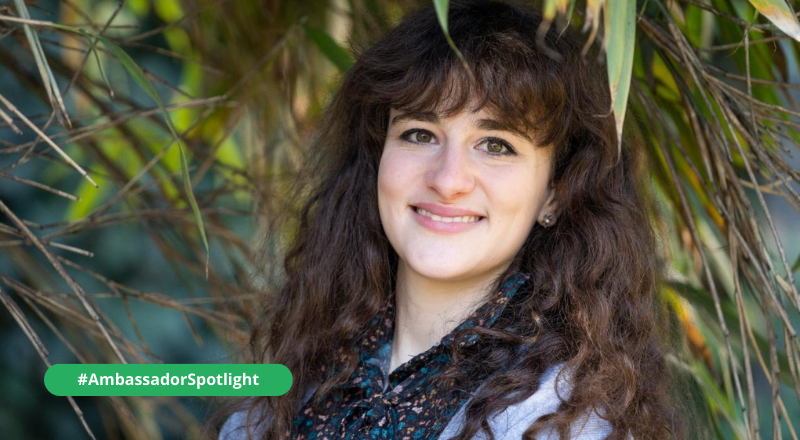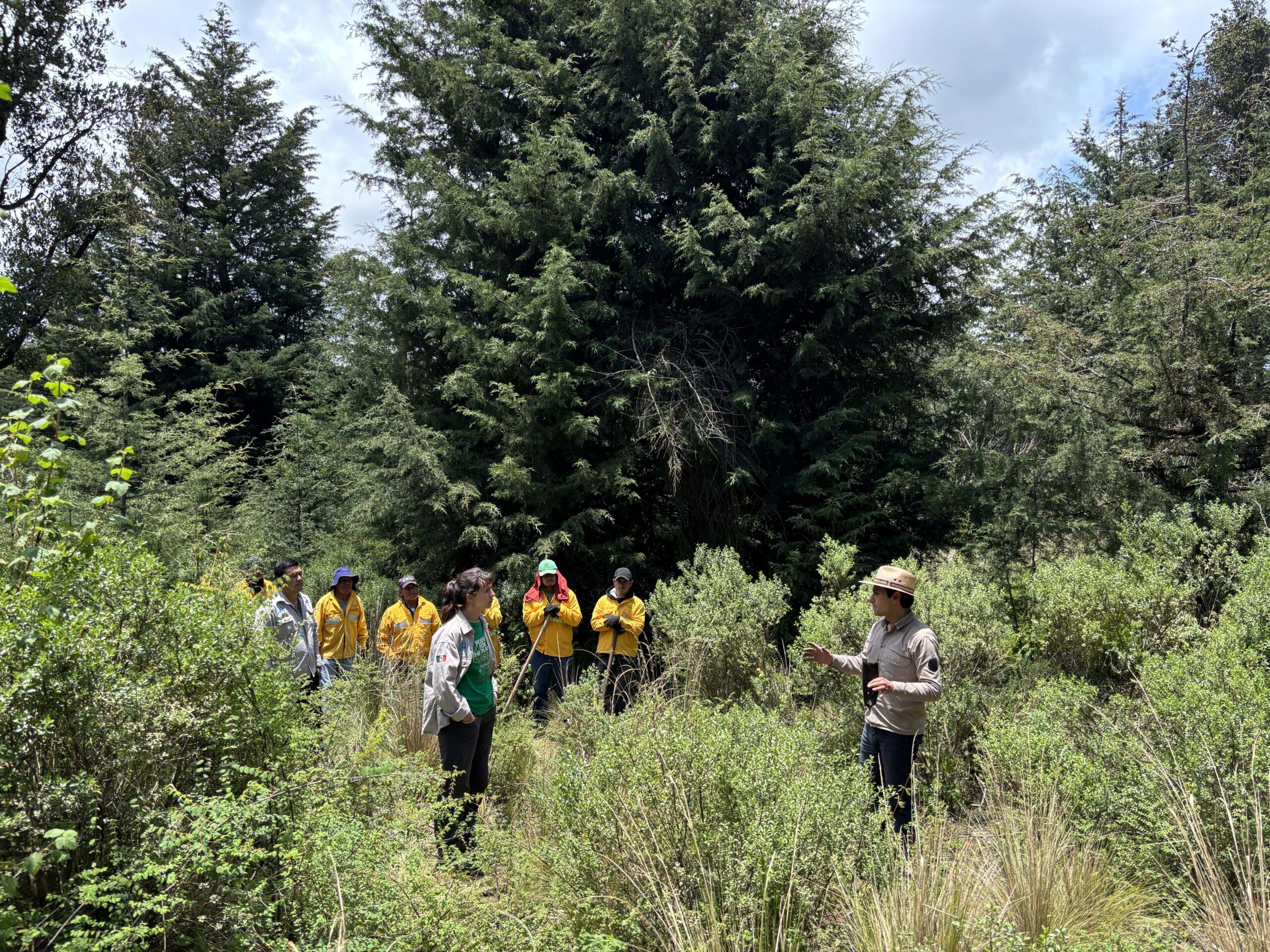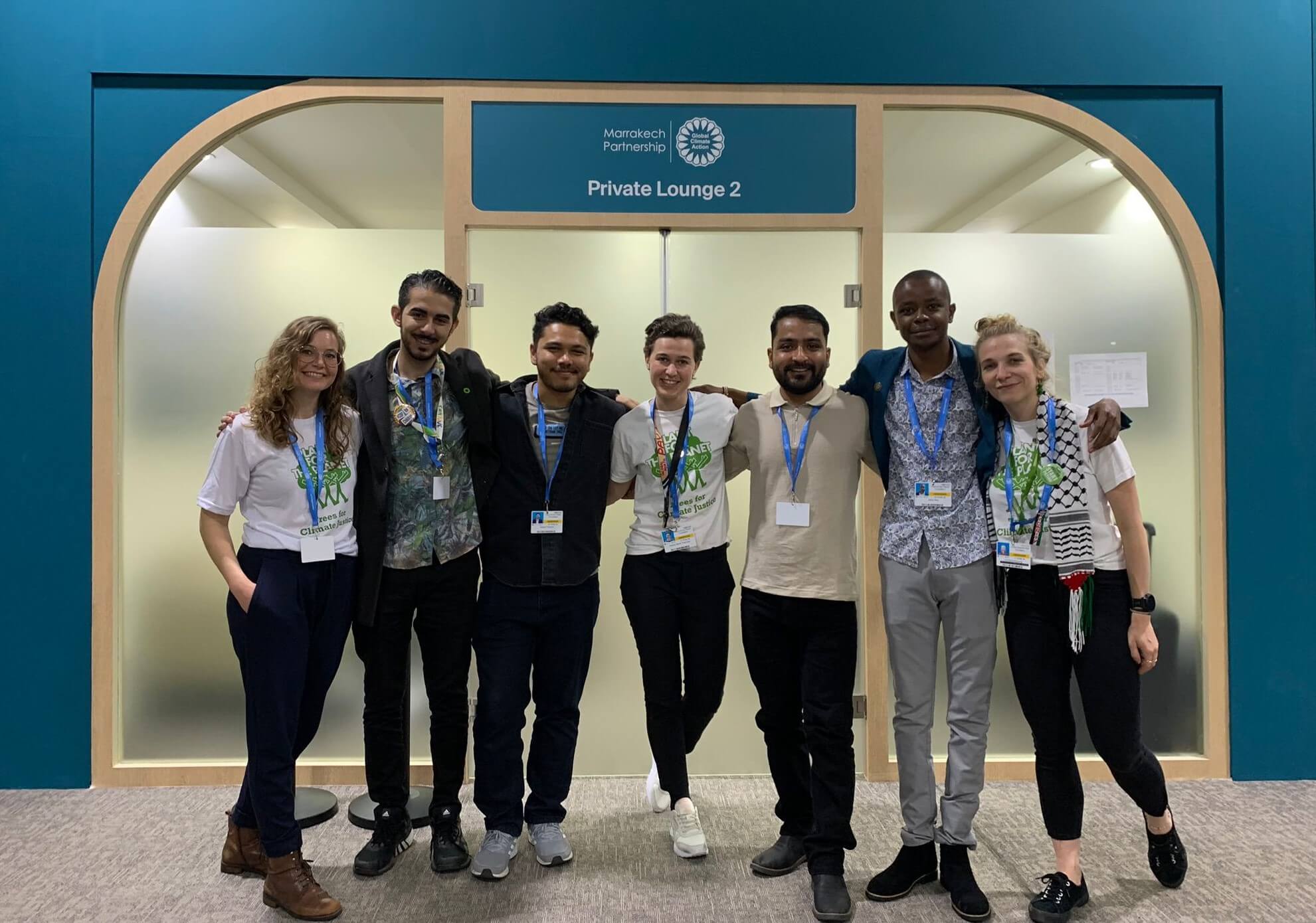
The COP29 in Baku once again highlighted the vast gap between the urgent need for climate justice action and the reality of international climate politics. Young Climate Justice Ambassadors and staff from Plant-for-the-Planet were on the ground to share their perspectives and raise their voices for a climate-just future. In a world where climate negotiations are increasingly dominated by fossil interests, it is more important than ever to listen to the voices of the younger generation – the generation that will feel the consequences of today’s decisions the most.
Despite the disappointment over the outcomes of the negotiations, the COP remains the key place where nearly all countries in the world come together to discuss the climate crisis. At least once a year, the climate conference draws global attention to the pressing challenges of the climate crisis and provides a space to discuss solutions and exert the necessary pressure on decision-makers.
In this article, we share insights from the impressions and experiences of our young representatives at COP29. They report on inspiring protests and challenging setbacks, but also on the unwavering hope and determination to continue the fight for climate justice. Their voices remind us to take responsibility for a sustainable and just future – and to back it up with the necessary actions.
Kismat Pachhai, Climate Justice Ambassador from Nepal

Representing Nepal, a country significantly impacted by the climate crisis due to its vulnerable mountain ecosystems, I believe COP29 in Baku could have been more fruitful. This was my second time attending a COP, the determination of many participants was truly motivating. The conference failed to give sufficient attention to critical mountain-related issues, such as glacial melting and its cascading impacts on water resources and local communities. Nonetheless, the numerous side events and protests, led by indigenous groups and activists, highlighted the growing global awareness and urgency of climate action. Although the outcomes were not as ambitious as hoped, the discussions and movements fostered during COP29 reinforced the collective commitment to advancing climate justice.
Emaan Danish Khan, Climate Justice Ambassador from Pakistan

COP29, held in Baku, Azerbaijan, was a major disappointment for many climate advocates, particularly regarding the Loss and Damage Fund. While the fund was operationalized, its initial capital of just $700 million was very inadequate compared to the billions needed annually to address climate disasters in vulnerable countries. Critics highlighted that the fund relies on voluntary contributions, with no mandatory obligations for wealthier nations to provide support. This lack of commitment undermines the principle of climate justice, as countries most responsible for emissions evade responsibility for their outsized impact on poorer, climate-affected nations.
Julius Sila, Climate Justice Ambassador from Kenya

At COP29, one vivid image came to mind: a big, well-fed man sits on the back of a frail, hungry man. The big man knows his weight is sinking the smaller man, yet offers every kind of help except stepping down. This mirrors the dynamic between the Global North and South in climate negotiations. Wealthy nations acknowledge the imbalance but refuse to change behaviors that perpetuate it, offering promises and aid while maintaining systems of privilege. Meanwhile, the Global South bears the burden of emissions it didn’t cause—suffering floods, droughts, and debt—with resilience stretched to its limits.
True climate justice demands more than self-righteous gestures; it requires systemic change. At COP29, the voices of vulnerable nations and youth gave me hope. Their resilience reminds us that justice, not charity, must drive climate action.
Ariane Benedikter, Climate Justice Ambassador from Italy

1,770 representatives of fossil fuel industry lobbies were present—forming a larger delegation than the state delegations of the 10 poorest and most vulnerable countries in the world combined. Nevertheless, the COP remains the only international conference where climate protection is negotiated globally. I am glad it exists and would not want to imagine how much less would happen without it. The COP also serves as a major trade fair for climate protection—and, as such, a hub for innovative civil society solutions.
We, as civil society and the younger generation, must not allow ourselves to be discouraged by hosts, circumstances, or electoral decisions. Instead, we must stay determined, continue to network, and move forward together.
Dharmendra Kapri, Climate Justice Ambassador from India

Attending COP 29 in Baku as part of the Plant-for-the-Planet delegation was both inspiring and challenging. The heartfelt appeals from vulnerable nations highlighted the urgency of climate action, yet the lack of concrete financial commitments and clear implementation plans for the Loss and Damage Fund was disappointing. While the solidarity among youth and civil society was uplifting, the limited reflection of their voices in final decisions reinforced my determination to push for stronger climate action from India and the global community.
Luciano Frontelle, Executive Director of Plant-for-the-Planet Brazil

COP29 revealed the need for urgent reform. Hosted by a country linked to the oil industry, with over 1,700 oil lobbyists, little progress was made. Despite COP 28’s pledge to move away from fossil fuels, this conference ignored it. The $300 billion for developing countries lacks fossil fuel reduction commitments, and the new carbon market may reinforce colonial structures.
I’m hopeful for Brazil’s presidency, given its history in environmental negotiations like Rio ’92. COP30 will face challenges, but with a strong civil society, Brazil can push for bolder commitments.
Helena Thiemeier, Institutional Fundraiser at Plant-for-the-Planet, Germany

The climate crisis disproportionately affects those who contributed the least, making this situation unjust. COP29 was a key moment for wealthier countries to step up. Although achieving progress on issues like Article 6, the overall outcome is that developed countries did not deliver despite their historic responsibilities – they are failing!
I am disappointed by the COP29 outcomes, which fall far short of the funding required for global climate protection, adaptation, and mitigation. The conference has shown once again that the G20 countries in particular urgently need to take more ambitious climate action.
Ines Heinbach, Press Referent at Plant-for-the-Planet, Germany

The outcomes of COP29 were disappointing but unsurprising. Hosted in a petrostate for the third consecutive year, it featured over 1,700 fossil lobbyists. Financial pledges fell drastically short, with $300 billion annually committed compared to the $1.3 trillion needed. One booth on “Climate Mobility” stood out to me—a euphemism for relocating hundreds of millions displaced by the climate crisis. A glance at the remaining habitable land on the world map shows this is no viable solution. What struck me most was the resilience of many: from emotional indigenous protests to activists demanding action under repressive conditions. Their determination reinforces that the fight for climate justice continues.
Looking ahead, COP30 will take place in Belém, Brazil—a region where the burning rainforest makes the climate crisis impossible to ignore. We must use this time to advocate for the preservation of our livelihoods.
Felix Finkbeiner, Founder of Plant-for-the-Planet

Nobody is paying up for the rainforest. At COP29, hopes for meaningful funding commitments for rainforest preservation were dashed. Without adequate forest funding, we’re not just failing to act on the climate crisis—we’re exacerbating it. The world cannot afford further inaction.
The 2022 IPCC Report made it clear: limiting temperature rise to 1.5°C is impossible without vastly improving forest conservation. At COP26, world leaders promised to end tropical deforestation by 2030. Yet, we continue losing 10 billion trees every year, and we’re far off track. Dedicated funding is essential for a zero-deforestation future.
What gives hope is that Brazil is making progress in protecting the rainforest. In 2024, deforestation was reduced by 31%—the lowest rate in nine years. This makes the choice of Belém as the host city for COP30 even more meaningful, as it offers a unique opportunity to amplify efforts for rainforest preservation at the heart of the Amazon.

